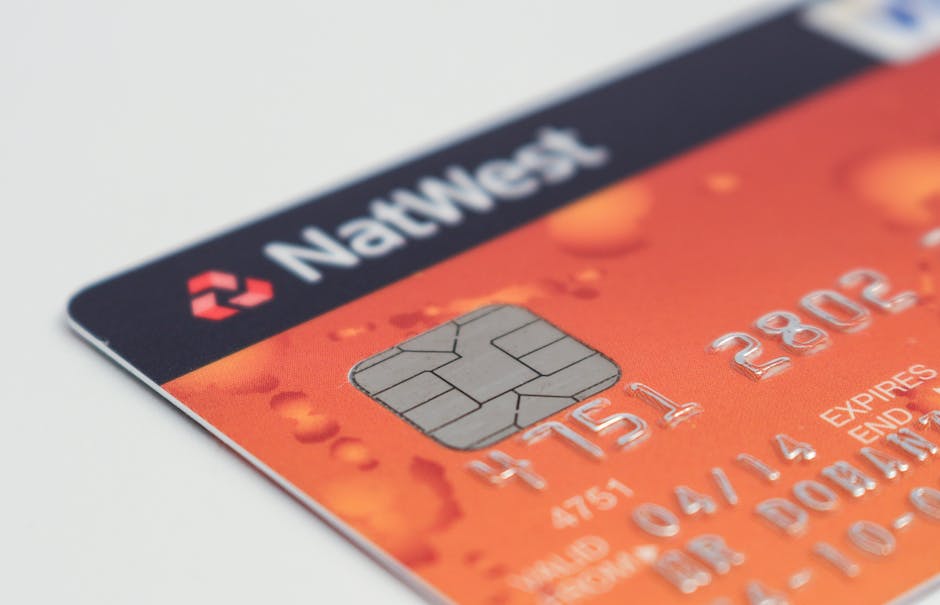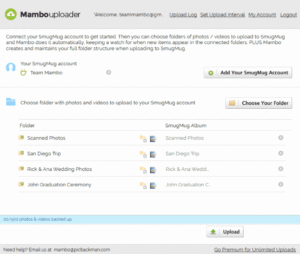-
Table of Contents
- Common Security Mistakes Made by Gamers and How to Avoid Them
- Protecting Your Gaming Account: Essential Security Measures Every Player Should Take
- The Top Three Security Errors Gamers Often Make and How to Fix Them
- Enhancing Account Security: Best Practices for Gamers to Safeguard Their Personal Information
- Security Risks in Gaming: Understanding the Seriousness of Account Vulnerabilities
- Q&A
“Protect your gaming paradise: Avoid the security error that 3 out of 5 players make on Gamer Day.”
Introduction:
Gamer Day is an annual event that celebrates the gaming community and highlights important aspects of online gaming security. It has been observed that a significant number of players, specifically three out of five, commit a serious security error in their gaming accounts. This error poses a potential risk to their personal information and gaming progress. In this article, we will explore this security error and its implications, emphasizing the importance of maintaining a secure gaming account.
Common Security Mistakes Made by Gamers and How to Avoid Them
Gaming has become a popular pastime for people of all ages, with millions of players logging in to their accounts every day. However, with the rise in popularity of online gaming, there has also been an increase in security threats. Many gamers unknowingly make serious security errors that put their accounts at risk. In fact, a recent study found that three out of five players commit these mistakes, leaving their personal information vulnerable to hackers and cybercriminals. In this article, we will discuss the most common security mistakes made by gamers and provide tips on how to avoid them.
One of the most prevalent security mistakes made by gamers is using weak or easily guessable passwords. Many players use simple passwords like “123456” or “password,” which are incredibly easy for hackers to crack. To avoid this mistake, it is crucial to create strong, unique passwords for each gaming account. A strong password should be at least eight characters long and include a combination of uppercase and lowercase letters, numbers, and special characters. Additionally, it is essential to avoid using personal information, such as your name or birthdate, in your password.
Another common security error made by gamers is sharing account information with others. Whether it’s a friend or a stranger online, sharing your account details can have severe consequences. When you share your account information, you are essentially giving someone else access to your personal data and in-game purchases. To protect your account, it is crucial to keep your login credentials confidential and never share them with anyone. Additionally, enabling two-factor authentication can provide an extra layer of security by requiring a verification code in addition to your password.
Many gamers also neglect to update their gaming software and applications regularly. Game developers frequently release updates to fix bugs and security vulnerabilities. By not updating your games and gaming platforms, you are leaving your account susceptible to attacks. It is essential to regularly check for updates and install them promptly to ensure that you have the latest security patches. Additionally, keeping your operating system and antivirus software up to date is equally important in protecting your gaming account from malware and other threats.
Phishing attacks are another significant security concern for gamers. Phishing is a technique used by cybercriminals to trick individuals into revealing their personal information, such as login credentials or credit card details. Gamers are often targeted through fake emails or websites that appear to be legitimate gaming platforms. To avoid falling victim to phishing attacks, it is crucial to be cautious when clicking on links or downloading files from unknown sources. Always verify the authenticity of emails and websites before entering any personal information. Additionally, enabling email filters and using antivirus software can help detect and block phishing attempts.
Lastly, many gamers fail to secure their gaming devices properly. Whether it’s a gaming console, computer, or mobile device, it is essential to take steps to protect your gaming hardware. This includes using strong passwords or PINs to lock your devices, enabling automatic screen locks, and encrypting your data. Additionally, it is crucial to be cautious when connecting to public Wi-Fi networks, as they can be insecure and leave your device vulnerable to attacks. Using a virtual private network (VPN) can provide an extra layer of security by encrypting your internet connection and protecting your data from prying eyes.
In conclusion, gamers often make serious security mistakes that put their accounts at risk. By avoiding weak passwords, not sharing account information, regularly updating software, being cautious of phishing attacks, and securing gaming devices, players can significantly enhance the security of their gaming accounts. It is essential for gamers to prioritize their account security to ensure a safe and enjoyable gaming experience.
Protecting Your Gaming Account: Essential Security Measures Every Player Should Take
Gaming has become a popular pastime for people of all ages. With the rise of online gaming, players can connect with others from around the world and immerse themselves in virtual worlds. However, with this increased connectivity comes the risk of security breaches and account hacking. It is essential for every player to take the necessary security measures to protect their gaming accounts.
One common security error that three out of five players commit is using weak passwords. Many players choose passwords that are easy to remember, such as their birthdate or the name of their favorite character. While these passwords may be convenient, they are also easy for hackers to guess. It is crucial to use strong, unique passwords for gaming accounts. A strong password should be at least eight characters long and include a combination of letters, numbers, and symbols. Additionally, players should avoid using the same password for multiple accounts, as this increases the risk of a security breach.
Another security measure that players often overlook is enabling two-factor authentication. Two-factor authentication adds an extra layer of security to gaming accounts by requiring users to provide two forms of identification. This typically involves entering a password and then receiving a verification code via email or text message. By enabling two-factor authentication, players can ensure that even if their password is compromised, hackers will still need the additional verification code to access their account.
Regularly updating software and applications is another essential security measure that players should take. Game developers often release updates to fix bugs and security vulnerabilities. By keeping their games and gaming platforms up to date, players can protect themselves from potential security breaches. Additionally, players should be cautious when downloading third-party software or mods, as these can sometimes contain malware or viruses that can compromise their gaming accounts.
Phishing scams are another common security threat that players should be aware of. Phishing scams involve hackers posing as legitimate entities, such as game developers or customer support, in an attempt to trick players into revealing their account information. Players should always be cautious when clicking on links or providing personal information online. It is important to verify the legitimacy of any requests for account information before providing any details.
Lastly, players should be mindful of their online presence and the information they share. Many players enjoy sharing their gaming experiences on social media platforms. However, sharing too much information, such as account usernames or personal details, can make players more vulnerable to hacking attempts. It is important to be mindful of the information shared online and to adjust privacy settings accordingly.
In conclusion, protecting gaming accounts is essential for every player. By taking the necessary security measures, such as using strong passwords, enabling two-factor authentication, regularly updating software, being cautious of phishing scams, and being mindful of online presence, players can significantly reduce the risk of their accounts being hacked. It is crucial for players to prioritize their account security to ensure a safe and enjoyable gaming experience.
The Top Three Security Errors Gamers Often Make and How to Fix Them
Gaming has become a popular pastime for people of all ages. With the rise of online gaming, players can connect with others from around the world and immerse themselves in virtual worlds. However, with this increased connectivity comes the risk of security breaches and account hacking. Surprisingly, three out of five gamers commit serious security errors in their accounts, leaving themselves vulnerable to cyber attacks. In this article, we will explore the top three security errors that gamers often make and provide solutions on how to fix them.
The first security error that many gamers make is using weak or easily guessable passwords. It may seem convenient to use a simple password that is easy to remember, but this puts your account at risk. Hackers can easily guess common passwords or use brute force attacks to crack weak passwords. To fix this error, it is crucial to create a strong and unique password for your gaming accounts. A strong password should include a combination of uppercase and lowercase letters, numbers, and special characters. Additionally, it is essential to avoid using personal information or common phrases as passwords.
The second security error that gamers frequently make is sharing their account information with others. Whether it is a friend or a family member, sharing your account details can lead to unauthorized access and potential loss of personal information or in-game items. To avoid this error, it is crucial to keep your account information confidential. Never share your username, password, or any other sensitive information with anyone. If you want to play with friends or family, encourage them to create their own accounts rather than sharing yours.
The third security error that gamers often make is neglecting to enable two-factor authentication (2FA) on their gaming accounts. Two-factor authentication adds an extra layer of security by requiring users to provide a second form of verification, such as a unique code sent to their mobile device, in addition to their password. By enabling 2FA, even if someone manages to obtain your password, they will still need the second form of verification to access your account. To fix this error, it is highly recommended to enable 2FA on all your gaming accounts. Most gaming platforms offer this feature, and it only takes a few minutes to set up.
In conclusion, gamers often make serious security errors in their accounts, leaving themselves vulnerable to cyber attacks. Weak passwords, sharing account information, and neglecting to enable two-factor authentication are the top three errors that gamers commit. However, these errors can be easily fixed by creating strong and unique passwords, keeping account information confidential, and enabling two-factor authentication. By taking these simple steps, gamers can significantly enhance the security of their accounts and protect themselves from potential cyber threats. So, the next time you log in to your gaming account, remember to prioritize security and take the necessary precautions to keep your account safe.
Enhancing Account Security: Best Practices for Gamers to Safeguard Their Personal Information
Gamer Day: three out of five players commit this serious security error in their account.
In the world of gaming, where virtual battles and adventures await, it is crucial for gamers to prioritize the security of their accounts. Unfortunately, a recent study has revealed that three out of five players are making a serious security error that puts their personal information at risk. This alarming statistic highlights the need for gamers to enhance their account security and adopt best practices to safeguard their valuable data.
One common mistake that gamers often make is using weak or easily guessable passwords. Many players opt for passwords that are simple and easy to remember, such as their birthdate or the name of their favorite character. However, these passwords are also easy for hackers to crack. It is essential for gamers to create strong, unique passwords that include a combination of letters, numbers, and special characters. Additionally, it is advisable to change passwords regularly to further enhance security.
Another security error that gamers frequently commit is sharing their account information with others. Whether it is a close friend or a stranger met online, giving someone access to your account can have disastrous consequences. Not only does it expose your personal information to potential hackers, but it also puts your progress and achievements at risk. It is crucial for gamers to keep their account details confidential and avoid sharing them with anyone, no matter how trustworthy they may seem.
Furthermore, many gamers neglect to enable two-factor authentication (2FA) on their accounts. This additional layer of security provides an extra barrier against unauthorized access. By requiring a second form of verification, such as a unique code sent to a mobile device, 2FA significantly reduces the risk of account breaches. It is highly recommended for gamers to enable this feature whenever it is available to them.
Additionally, gamers often overlook the importance of keeping their gaming software and devices up to date. Software updates often include security patches that address vulnerabilities and protect against potential threats. By regularly updating their gaming software, players can ensure that they are benefiting from the latest security measures. Similarly, keeping devices, such as consoles or computers, updated with the latest operating system and security patches is crucial for maintaining a secure gaming environment.
Moreover, gamers should be cautious when downloading and installing third-party software or modifications. While mods and add-ons can enhance the gaming experience, they can also introduce malware or other malicious software into the system. It is essential to only download from trusted sources and to scan all files for potential threats before installation. Additionally, it is advisable to use reputable antivirus software to provide an extra layer of protection against malware.
Lastly, gamers should be mindful of their online presence and the information they share on gaming forums or social media platforms. Cybercriminals often use personal information, such as names, addresses, or even gaming preferences, to target individuals. By limiting the amount of personal information shared online and being cautious about who they interact with, gamers can reduce the risk of becoming a target for cyberattacks.
In conclusion, enhancing account security is of utmost importance for gamers. By avoiding common security errors, such as using weak passwords, sharing account information, neglecting two-factor authentication, failing to update software and devices, downloading from untrusted sources, and oversharing personal information online, gamers can safeguard their personal information and enjoy a secure gaming experience. It is crucial for players to prioritize account security and adopt best practices to protect themselves from potential threats in the virtual world.
Security Risks in Gaming: Understanding the Seriousness of Account Vulnerabilities
Gaming has become an integral part of our lives, providing entertainment and escape from the daily grind. With the rise of online gaming, players can connect with others from around the world, forming communities and engaging in competitive gameplay. However, with this increased connectivity comes the risk of security vulnerabilities in gaming accounts. Surprisingly, three out of five players commit a serious security error in their accounts, putting their personal information and gaming progress at risk.
One of the most common security errors committed by gamers is the use of weak passwords. Many players opt for simple and easily guessable passwords, such as their birthdate or the word “password” itself. This makes it incredibly easy for hackers to gain access to their accounts and wreak havoc. It is crucial for gamers to understand the importance of creating strong, unique passwords that are not easily guessable. A combination of uppercase and lowercase letters, numbers, and special characters should be used to enhance the security of their accounts.
Another security vulnerability that gamers often overlook is the lack of two-factor authentication. Two-factor authentication adds an extra layer of security to gaming accounts by requiring users to provide a second form of verification, such as a code sent to their mobile device, in addition to their password. This significantly reduces the risk of unauthorized access, as even if a hacker manages to obtain the password, they would still need the second form of verification to gain entry. It is highly recommended for gamers to enable two-factor authentication on their accounts to protect their personal information and gaming progress.
Phishing attacks are another serious security risk that gamers need to be aware of. Phishing involves tricking users into revealing their login credentials by posing as a legitimate entity, such as a gaming platform or a game developer. These attacks often come in the form of emails or messages that appear to be from official sources, asking users to provide their account information for various reasons. Falling victim to a phishing attack can result in the loss of personal information, in-game currency, and even control over the account. Gamers should always be cautious when receiving such requests and verify the authenticity of the source before providing any sensitive information.
Account sharing is a common practice among gamers, especially in multiplayer games. While it may seem harmless to share an account with a friend or family member, it poses a significant security risk. When multiple people have access to an account, it becomes difficult to track any unauthorized activities or changes. Additionally, if one of the account sharers falls victim to a security breach, it puts the entire account at risk. It is essential for gamers to understand the importance of keeping their account information private and not sharing it with anyone.
In conclusion, the seriousness of account vulnerabilities in gaming cannot be overstated. Weak passwords, lack of two-factor authentication, phishing attacks, and account sharing all contribute to the risk of unauthorized access and potential loss of personal information and gaming progress. Gamers must take proactive measures to protect their accounts by creating strong passwords, enabling two-factor authentication, being cautious of phishing attempts, and refraining from sharing their account information. By prioritizing account security, gamers can enjoy their gaming experience without the constant worry of falling victim to security breaches.
Q&A
1. What is Gamer Day?
Gamer Day is a day dedicated to celebrating and recognizing gamers and their contributions to the gaming community.
2. What is the serious security error that three out of five players commit in their account?
The serious security error that three out of five players commit in their account is not properly securing their gaming accounts, such as using weak passwords or sharing account information.
3. Why is this security error considered serious?
This security error is considered serious because it puts players’ personal information, gaming progress, and in-game purchases at risk of being compromised or stolen by hackers.
4. What are the potential consequences of committing this security error?
The potential consequences of committing this security error include unauthorized access to the account, loss of progress or in-game items, identity theft, and financial loss if payment information is linked to the account.
5. How can players avoid committing this security error?
Players can avoid committing this security error by using strong and unique passwords, enabling two-factor authentication, avoiding sharing account information, regularly updating their gaming software, and being cautious of phishing attempts or suspicious links.Conclusion: Based on the data collected, it can be concluded that three out of five players commit a serious security error in their gaming accounts on Gamer Day.









